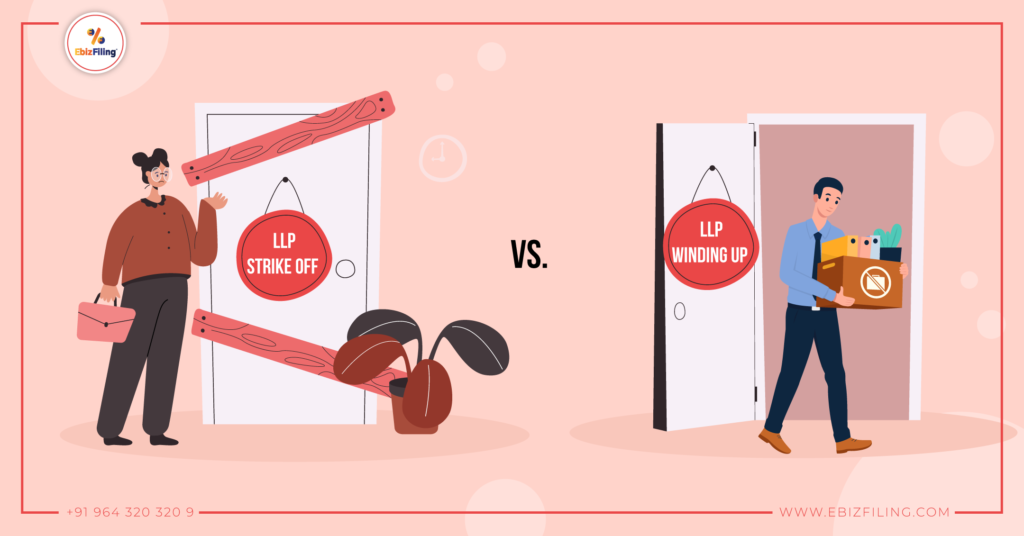Introduction
Running a business is exciting, but sometimes, shutting it down becomes necessary. Many people ask me – what is the difference between winding up and striking off? Both are legal ways to close a company, but they follow different rules and have different effects.
As a tax consultant with Taxlegit, I help clients make the right decisions, from private ltd company registration to company closure. In this blog, I’ll explain the major differences between winding up and striking off. This will help you decide which one suits your business situation.
What is Winding Up?
Winding up is the formal process of closing a company. It involves selling all assets, paying debts, and distributing the remaining funds to shareholders. After this, the company ceases to exist.
There are two types:
- Voluntary Winding Up (by shareholders)
- Compulsory Winding Up (by tribunal or court)
This process is detailed and monitored by law. It can take several months to complete.
What is Striking Off?
Striking off is a simpler method. The company applies to the Registrar of Companies (ROC) for its name to be removed from the register.
It is possible only when the company:
- Has no operations
- Has no pending debts or liabilities
- Has obtained approvals from shareholders
Striking off is quicker and more cost-effective.
Key Differences
Here are the major differences between winding up and striking off:
1. Legal Procedure
- Winding up is a court or shareholder-driven process.
- Striking off is initiated by the company through a simple application.
2. Cost and Time
- Winding up costs more and takes longer.
- Striking off is cheaper and faster.
3. Debt Settlement
- Winding up handles pending debts, taxes, and liabilities.
- Striking off requires that all dues be cleared before applying.
4. Company Status
- Winding up dissolves the company through a legal closure.
- Striking off removes the company name, but revival is easier if needed.
When Should You Choose Winding Up?
Go for winding up if your company has:
- Large assets
- Ongoing debts
- Complex business history
This method provides clarity, especially for shareholders and creditors.
When is Striking Off the Best Option?
Striking off is ideal when:
- Your business never started
- Operations stopped long ago
- No debts or pending work exists
It’s perfect for businesses that are inactive and want a simple exit.
How I Can Help at Taxlegit
At Taxlegit, I help clients not only with private ltd company registration, but also with legal exits.
I guide you through:
- Document preparation
- Eligibility check
- ROC filing process
- Post-closure compliance
We keep the process smooth and cost-effective.
Planning a Fresh Start?
Thinking of restarting after closing your business? Many of my clients close old setups and start fresh.
If you’re planning a comeback, I’ll help you with:
- New private limited company registration
- MSME and GST registration
- FSSAI license
- Guidance on how to start food business with Zomato
Final Thoughts
Understanding the difference between winding up and striking off is important. It helps you avoid legal trouble and plan future moves easily.
As your consultant at Taxlegit, I’ll make sure you get expert advice and stress-free closure.
Let’s make the right exit for a better next step.

